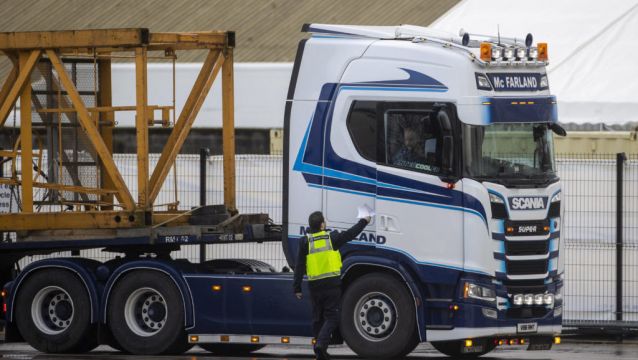Road safety organisations across Europe have expressed concern at major reform of driving licences being proposed by the European Commission which would allow teenagers to drive heavy goods vehicles.
The European Transport Safety Council has called for the recommended age for a lorry driving licence in the EU to remain at 21 and the minimum age to drive buses and coaches to be kept at 24.
The ETSC, whose members include Ireland’s Road Safety Authority, has warned about the dangers of very young motorists being permitted to drive large vehicles.
The European Commission has proposed allowing 17-year-olds to begin accompanied training to drive a lorry as part of a “road safety backage” of new legislation governing driving licences in the EU.
Although the current recommended minimum age to drive heavy goods vehicles in the EU is 21, five countries already allow 18-year-olds to drive HGVs under certain conditions.
Key vote
A key vote on the proposed reform is due to take place at a meeting of EU transport ministers including the Irish Minister for Transport, Eamon Ryan, in Brussels on Monday.
The ETSC, whose position is supported by representatives of transport workers, road victims’ associations and cyclist organisations, said putting a teenager behind the wheel of a 40-tonne lorry risks serious consequences for road safety.
In a joint open letter to EU transport ministers, they expressed concern that the proposal to lower the general recommended age could encourage even more countries to allow “youngsters” to begin driving HGVs on their own from the age of 18.
ETSC policy director, Ellen Townsend, said data from countries that already allowed motorists under the recommended minimum age of 21 to drive HGVs highlighted the additional risk in allowing younger motorists to drive lorries.
Ms Townsend said research in Germany showed that HGV drivers aged 18-20 caused a much higher number of collisions resulting in personal injury compared to all other age groups among lorry drivers.
She said similar data from Finland and Poland showed that teenage truck and bus drivers were proportionately involved in more collisions that drivers of similar vehicles in older age groups.
Young people undergo significant biological and social changes between the age of 15 and 25.
“Young people undergo significant biological and social changes between the age of 15 and 25. Brain development is ongoing throughout this period and is not completed until well into the 20s,” said Ms Townsend.
The ETSC said the cognitive abilities of young people learning to drive are still not completely developed which can affect their perception and attitudes towards risk.
“As road users, young people tend to display risky behaviours and have a diminished appreciation of the hazards that they face,” said Ms Townsend.
She added: “Our message is: do not lower the minimum age for any type of driving licence but pay special attention to the heaviest vehicles where crashes can be catastrophic.”
The ETSC said the proposed changes which could allow teenagers to drive lorries was likely to have the opposite effect of the desire to make EU roads safer.
Controversial changes
The proposals are part of a series of controversial changes being put forward by the European Commission, including allowing children as young as 16 to drive cars that have been fitted with a speed-limiting device and mandatory training for all professional van drivers.
Others include a requirement for motorists over 70 to undergo regular medical tests and refresher courses in order to renew their driving licence.
The European Commission claims the proposed reform of driving licence legislation will support efforts to reduce road fatalities and serious injuries as well as reduce administrative burdens and obstacles to the free movement of EU citizens.
It claims the measures are also designed to address a shortage of professional drivers with proposals on lowering the minimum age to obtain a driving licence “to address mobility issues in remote areas.”







